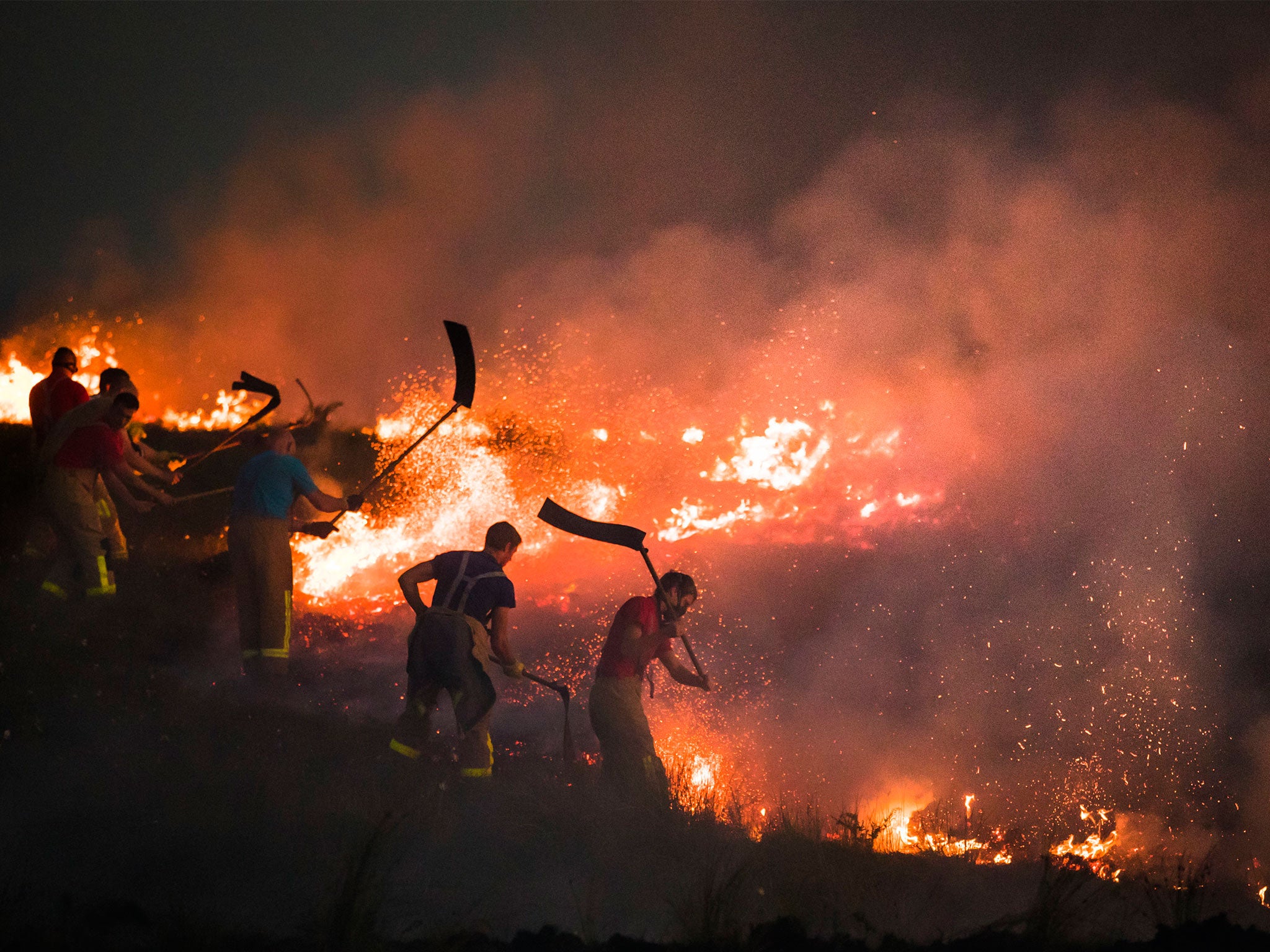Your support helps us to tell the story
From reproductive rights to climate change to Big Tech, The Independent is on the ground when the story is developing. Whether it's investigating the financials of Elon Musk's pro-Trump PAC or producing our latest documentary, 'The A Word', which shines a light on the American women fighting for reproductive rights, we know how important it is to parse out the facts from the messaging.
At such a critical moment in US history, we need reporters on the ground. Your donation allows us to keep sending journalists to speak to both sides of the story.
The Independent is trusted by Americans across the entire political spectrum. And unlike many other quality news outlets, we choose not to lock Americans out of our reporting and analysis with paywalls. We believe quality journalism should be available to everyone, paid for by those who can afford it.
Your support makes all the difference.As many as eight high-temperature records were broken in the UK between 2010 and 2019, making the decade the second hottest in the past 100 years.
Four records were set in 2019 alone, including the highest winter and summer temperatures, according to the Met Office, which said the trend was a “consequence of our warming climate”.
The hottest day recorded to date in the UK was 25 July last year, when the mercury hit 38.7C at the Cambridge University Botanic Garden.
Scotland and Wales also broke national records for warmest winter, with 18.3C recorded in Aboyne in Aberdeenshire on 21 February and 20.8C recorded in Porthmadog, Gwynedd, five days later.
Dr Mark McCarthy, head of the Met Office’s National Climate Information Centre, said: “It is notable how many of these extreme records have been set in the most recent decade and how many more of them are reflecting high rather than low-temperature extremes: a consequence of our warming climate.
“We are expecting the warming trend to continue through the 21st century and we would expect these sorts of records subsequently to be broken in the future.”
While still pending verification, a potential new December maximum of 18.7C recorded on 28 December may also have been set in 2019.
Last year was the 11th warmest on record, with a mean average temperature of 9.42C. The top 10 hottest years have all occurred since 2002.
The 2010s were the second warmest and second wettest decade in the past 100 years, behind only the 2000s, the Met Office said.
Last year was also the 11th wettest on record, with some counties such as Nottinghamshire, Lincolnshire, and parts of South Yorkshire having annual rainfall figures in the top five, meteorologists said. Lincolnshire received 230 per cent of its average June rainfall during the month last year.
Mr McCarthy said: “We have observed a general increase in rainfall in recent decades but that’s not evenly distributed so not everyone in the country has experienced this.
“We are expecting to see an increase in winter rainfall so wetter winters and drier summers – but we could still experience some dry winters and wet summers.”
A government spokesman said: “Climate change is a national priority and we are determined to address it.
“We were the first major economy to set out a legally binding target to eliminate our contribution to climate change by 2050, and are the fastest in the G20 to decarbonise since 2000.
“Since 1990, we have reduced our emissions by over 40 percent while growing the economy by over two thirds.
“But we are determined to do more to increase the momentum and drive ambitious action both in the run up and at this year’s COP26 talks in Glasgow.”

Join our commenting forum
Join thought-provoking conversations, follow other Independent readers and see their replies
Comments